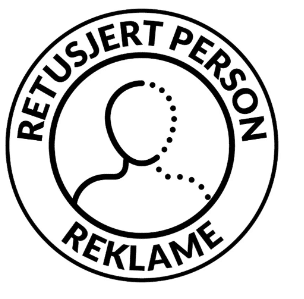In Norway, people declared war on the beauty craze as early as 2021 and demanded that retouched photos be labeled. Bye-bye, body shaming! Now this is being implemented.
Photographers know the customers' wishes for their photos: make the legs a little longer, lose a few kilos here and there, make the muscles a little more pronounced, ... - the wish list is often very long. In many cases, clever posing and knowledge of lighting are enough, but sometimes you have to use a digital magic wand and use image editing and retouching to help a little.
The embellishments that are already applied to private photos are even more reflected in influencers and in advertising. Here body shapes are adjusted, the skin is ironed smooth, the hair is made voluminous - the list goes on and on. And people often emerge here who simply don't exist in real life.
Body shaming: Fake photos promote distorted perception
There is no question that this obsession with beauty and the pursuit of the perfect appearance also has negative effects. Many are guided by the seemingly flawless appearance of the “model idols”. However, this also means that when you are blinded by it, you no longer feel quite as comfortable in your own skin. Body shaming is a term that has unfortunately come across all too often in recent years.
Photos of seemingly perfect people with flawless appearance promote a distorted perception. Every day on social media and in advertising they make you believe that the world is full of top models. Children and young people in particular suffer from this form of truth distortion.
Unique law in Norway
You are sporty, slim and have perfect skin! Most of the time, glossy images on Instagram and other social media channels are so heavily edited that they give young people an unrealistic ideal of beauty. Norway now wants to protect young people from this with a new law. This is to make it clear that people in advertising are not always shown as they actually look.
From now on, influencers and other advertisers in Norway must explicitly label when people's appearance has been changed in advertisements. HERE in Norway , according to which retouched and otherwise manipulated appearances in advertising, i.e. paid advertisements, must be provided circular, uniform notice

The notice must be marked with this symbol. Source: Norwegian Government
Less idealized bodies
This includes body shape, size and skin, for example changes in the shape of the face, wider shoulders and narrower hips. The measure is intended to help make consumers aware that people are not always shown in advertising as they actually look. In the end, it's about less idealized bodies in advertising and thereby protecting younger people in particular.

“We are finally getting a powerful measure against the unhealthy body pressure that children and young people in particular are exposed to”
Kjersti Toppe (Norwegian Minister for Children and Families)
The new rule also explicitly applies to influencers in Norway
The labeling requirement applies to all classic and social media and expressly also to influencers and other people who place advertising online on the Internet and in social media.
fine
Anyone who doesn't comply will face a fine. The notice should make up around seven percent of the image area and be placed clearly in the upper left corner of the advertisement . Both those who created the advertisement and the advertisers who want to make money from it can be held responsible.
Source: Norwegian Government , Forbrukertilsynets veiledning om merking av retusjert advertising
Notes:
1) This content reflects the current state of affairs at the time of publication. The reproduction of individual images, screenshots, embeds or video sequences serves to discuss the topic. 2) Individual contributions were created through the use of machine assistance and were carefully checked by the Mimikama editorial team before publication. ( Reason )


